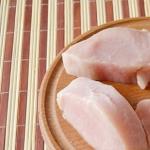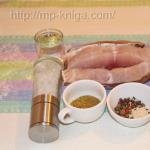Strengthen the resistance of immunity against continuous attacks of pathogenic agents itself of different origins specially created medicines help. To increase immunity in adults, drugs of synthetic, plant, animal origin are prescribed - interferons, immunomodulators.
How to increase the immunity of an adult, what drugs to drink, so as not to get sick during a flu epidemic, to keep working?
With frequent infections, diseases of the nasopharynx, funds are prescribed:
- microbial origin - Ribomunil, Bronchomunal, Imudon, IRS-19;
- immunomodulators obtained from animal tissues - Myelopid;
- cytokines - Polyoxidonium, Likopid, Timogen, Diucifon, interferons - Leukinferon, Viferon;
- vegetable - Immunal, tincture of eleutherococcus, hawthorn, leuzea;
- propolis;
- with nucleic acids - Methyluracil, Zimozan A, Derinat;
- Levamisole;
- Galavit.
List of medicines
Adults are most often prescribed drugs that increase immunity, stimulating the formation of interferons - Viferon, Kagocel, Derinat, Amiksin, Remantadin, Imudon, Polyoxidonium, Cycloferon, Dekaris, Lizobakt, IRS-19.
Kagocel
The immunostimulating effect is combined in a preparation with antiviral properties. Taking Kagocel should be started in the first 96 hours of illness.
Taking a drug that strengthens the immune system in adults, children from 3 years old, stimulates the production of interferons, which are characterized by increased activity. Kagocel can be used for influenza, ARVI, the drug is active against.
The positive effect of Kagocel is observed in the case of influenza complicated by the addition of a bacterial infection (,). The drug is approved for children, is not used to treat pregnant women, although it does not have a harmful effect on the fetus.
Kagocel is effective in prophylaxis against influenza A, B, respiratory syncytial virus, parainfluenza of all types, and adenovirus infection.
Viferon
The drug from the group of cytokines Viferon is used to strengthen immunity in children, elderly adults, and pregnant women.
Viferon is different a wide range, suppresses the action of viruses:
- respiratory, disease-causing respiratory tract, including cases of complication of bacterial infection;
- urogenital, causing chlamydia, bacterial vaginosis, mycoplasmosis, cytomegalovirus infection in adults;
- hepatitis B, C, D.
The dosage form in the form of suppositories allows the use of Viferon in premature babies in the first days of life, newborns. Local application of the drug allows you to use it during pregnancy (from 14 weeks), during breastfeeding.
Imudon
To stimulate local immunity oral cavity with a respiratory infection, an immunomodulatory agent is prescribed in tablets for resorption Imudon.
The product contains a mixture of lysates (destroyed fragments) of several types of neutralized pathogens that cause diseases of the nasopharynx.
Absorbent tablets that increase the immunity of the mucous membrane of the oropharynx are used in adults, children from 3 years old, as part of complex therapy for the treatment of pharyngitis, tonsillitis. Imudon is effective in the treatment of denture ulceration in adults.
Polyoxidonium
The drug Polyoxidonium is intended to strengthen the immune system in adults, it is allowed for children:
- suppositories - from 6 years old;
- in tablets - after 12 years.
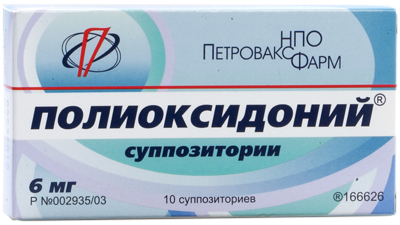 Polyoxidonium increases the body's resistance to local and generalized infections, simulates the production of interleukins, without depleting the immune system, without causing hyperactivation.
Polyoxidonium increases the body's resistance to local and generalized infections, simulates the production of interleukins, without depleting the immune system, without causing hyperactivation.
The drug combines the properties of an immunomodulator, detoxifier, antioxidant. Polyoxidonium accelerates the elimination of toxins, blocks lipid peroxidation.
The use of Polyoxidonium allows to reduce the number of antibiotics, hormonal agents in the treatment of respiratory tract infections, inflammation of the nasopharynx.
The drug is widely used to raise immunity in adults, but it is not allowed during pregnancy due to insufficient knowledge of the action.
Amiksin
The drug Amiksin has antiviral, immunomodulatory activity, the tablets are used to raise immunity in adults, children from 7 years old.
Amiksin (tilorone) causes the synthesis of interferon in the human body, exhibits the ability to counteract influenza viruses, RS virus, herpes infection, hepatitis.
Amiksin is used for treatment, prevention of influenza, but not during pregnancy, lactation. Tablets are used to increase immunity in the treatment of hepatitis A, B, C, chlamydial infection in adults, as part of complex therapy, the drug is drunk with a course for tuberculosis.
Likopid
The domestic remedy Likopid is distinguished by a wide spectrum of action on pathogens of viral and bacterial nature. The drug that raises immunity is available in 10 mg tablets for adults, 1 mg for children.
Likopid is a synthetic substance similar to a complex compound (peptidoglycan), which is a fragment of a bacterial wall. In the body, this compound activates phagocytes, enhances the synthesis of antibodies, interleukins.
Likopid is prohibited for pregnant women. In children, Likopid tablets are prescribed as part of treatment for an exacerbation of a respiratory infection, but at temperatures below 38 ° C.
In adults, Likopid is prescribed to maintain immunity in case of pneumonia, respiratory tract infections, herpes, papillomavirus, herpes, psoriasis, pulmonary tuberculosis.
Derinat
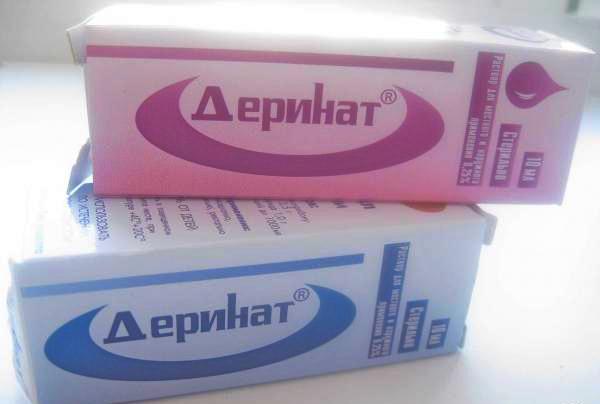 To strengthen immunity for adults, Derinat is prescribed - an immunomodulating drug with activity against viruses, fungi, bacteria.
To strengthen immunity for adults, Derinat is prescribed - an immunomodulating drug with activity against viruses, fungi, bacteria.
The tool is used at any age, children can use it from birth. During pregnancy, Derinat is prescribed based on the possible benefits to the mother, taking into account the risk to the fetus.
Immunomodulatory properties allow Derinat to be used to strengthen the immune system, in case of respiratory infection, asthma, atopic dermatitis, salpingitis, prostatic hyperplasia.
Conclusion
The army of cells of the immune system, which stands guard over health, includes several types of lymphocytes, eosinophils, macrophages, neutrophils, basophils.
It is difficult to get this complex mechanism to work correctly by just taking pills. Moreover, with self-medication, there is a risk of unbalancing immune system... It is necessary to strengthen the immune system in a comprehensive manner, as it was described on the pages of the site.
Immunity (in Latin immunitas - deliverance, release from something) is the body's immunity to agents of an infectious type and substances that carry foreign information at the genetic level. This is important to remember. In general it is defensive reaction the body to certain stimuli. Currently, many are wondering which drugs will be discussed later.
How does it work?
By definition, immunity is a set of interactions between the corresponding system and agents of a biologically active type (antigens), which are aimed at preserving constancy in the internal environment of the body (homeostasis). Next, we will consider this process in detail.
When an antigen enters the body, an interaction with it occurs immune cells... That is, there is such a peculiar definition as "alien" or "our". After that, a corresponding reaction occurs. Namely, if the introduction of foreign antigens has occurred, then antibodies are secreted by the immune system. With their help, malicious elements are destroyed. This is the so-called humoral immunity. Discovered this terminology
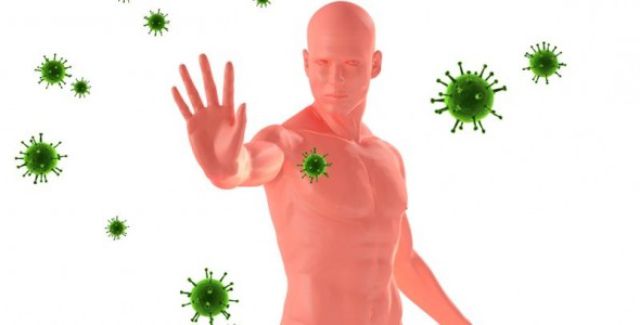
Some biological agents (bacteria, cancer cells, etc.) can be directly eliminated. Elements such as phagocytes "eat" them. This is called cellular immunity. It was discovered by I. I. Mechnikov. These immunities are interrelated. This is due to the fact that phagocytes, absorbing the bacterium, produce antibodies against it.
Description of signs of weakened immunity in adults and children
The borderline between normal and reduced immunity functionality is very thin, as a result of which it is almost impossible to determine it on your own. Therefore, in this case consultation with an immunologist or allergist is necessary. He will appoint the appropriate laboratory research and will determine the necessary drugs to raise immunity.

Indirect signs indicating a decrease in this indicator can be:
- The presence of frequent colds, viral infections more than 5 times a year. At the same time, the temperature does not rise much.
- Manifestations of increased fatigue, general weakness, headaches, blue under the eyes, pallor skin... However, these same symptoms can occur with blood diseases. As a result, with these symptoms, it is necessary to seek the advice of a doctor.
- The onset of drowsiness, insomnia.
- Painless enlargement of the axillary and as well as the spleen.
- The appearance of brittle nails, dull split hair.
- The manifestation of dryness and flaking of the skin.
- Allergies to food, cold, sun exposure, as well as a corresponding cough and rhinitis are a sign of a malfunction in the immune system.
- The emergence of intestinal dysbiosis. In this case, there is a deterioration in appetite, flatulence, impaired stool, weight loss.
Preparations for immunity for children
The child is very susceptible to ARVI and influenza virus. In this case, it is better to use the following drugs for immunity for children:
- "Temiflu" is effective against influenza viruses of categories "A" and "B". This drug has a certain effect, namely, it helps to prevent the spread and multiplication of the specified virus in the human body. It is not recommended to take "Temiflu" in case of hypersensitivity to the constituent components. The treatment process should be started no later than 2 days after the onset of the initial flu symptoms. The drug must be taken during meals, namely in the morning and evening time... The treatment course is carried out for 5 days. This drug should only be taken as directed by a doctor.
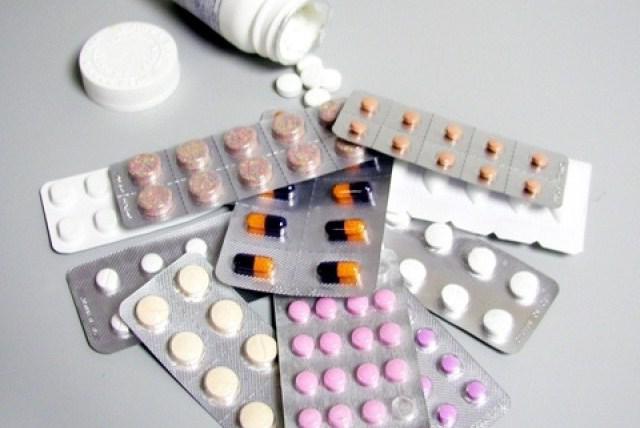
- "Rimantadin". This remedy is used with prophylactic and therapeutic purpose with influenza virus category "A". This drug is not indicated for children under 7 years of age. In general, this medication is not associated with side effects. However, sometimes allergic reactions can occur. These include memory impairment, sleep disturbance, nervousness, nausea, and vomiting.
- "Acyclovir" is an antiviral type. It is taken in a special case, namely with the manifestation of the herpes virus. With the help of this medication, you can prevent the subsequent formation of a rash, prevent the development of complications in the internal organs, increase the formation of crusts and reduce pain. In addition, this drug helps to stimulate the body's immune system.
Such drugs are produced in different types... These can be tablets, solution (for intravenous use), ointments and creams (for local treatment). This drug is contraindicated in newborn babies. This is important to know. Tablets are prescribed for a child after 2 years in the same dosage as for an adult. The introduction of the solution is carried out to babies from the age of three months. Children under 2 years of age are prescribed 1/2 of the adult dose.
Preparations for strengthening the immune system
In this case, several types are seen. Medicines that increase immunity can be classified both by their mechanism of action and by origin. Let's take a closer look at each category below.

Herbal preparations:

Bacterial drugs
This is a specific group drugs which enhance immunity and contain bacterial cell components. It works quite simply: bacterial proteins, entering the human body, cause not a disease, but an immune response to this microorganism. As a result, when a real microbe enters, the corresponding system will already be "armed" with antibodies. Immunity-enhancing drugs act like vaccinations.
- Imudon, Ribomunil, Likopid, Irs-19 contain elements of bacteria that are most common in infectious diseases of the upper respiratory tract.
- Uro-Vax is a lysate of bacteria such as Escherichia coli. It is used when chronic infections occur in urinary tract which are caused by this microbe.
Interferon-containing products
Medicines that increase immunity are divided into two subgroups:
- Human interferon. There are about 20 of them in the body. They are divided into three subgroups (gamma, beta and alpha). The production of such a substance in pharmaceutical companies is carried out both individually and in the form of appropriate mixes. For example. "Viferon", "Laferon", "Grippferon", "Welferon" and others. Their production is carried out using genetic engineering or using donated blood.
- Stimulants that produce endogenous interferon are a group of agents that fight viral infections, namely: Arbidol, Anaferon, Kagocel, Amiksin, etc.
Medicines containing nucleic acids
These drugs for raising immunity are stimulants of cellular and humoral immunity. The principles of their mechanism of action are not fully understood. They are mainly used for infections of the bacterial type (including the development of tuberculosis), as well as to increase the effectiveness of vaccines such as derinat and sodium nucleinate.

Also, these drugs that increase immunity have a pronounced wound-healing effect. This makes them very useful if you have purulent wounds and extensive burns. Some drugs that increase immunity are used as stimulants to produce interferon for viral infections. For example, "Ridostin".
Thymus remedies
In another way, this category is called immunoregulatory peptides. These include "Thymosin", "Timalin", "Timogen", "Timactide", etc. The oldest group of immunomodulators, known since the 70s, is an extract from an element such as thymus animals. It stimulates individual links of the immune system. It is effective in the presence of immunodeficiency conditions, which are mainly caused by chronic infections... For example, trophic ulcers, tuberculosis, etc.
Stimulants of the biogenic category
This group includes drugs that increase immunity in adults. They are based on animals or Ships include: "Actovegin", aloe extract, "Biosed", "Fibs", "Gumisol".
Azoximer bromide
A fairly new drug in this category is Polyoxidonium. It was founded in 1997. Nowadays it's pretty popular remedy... It has immunostimulating, antioxidant, detoxifying and membrane stabilizing effects. Also, the substance has hepatoprotective properties. To increase its bioavailability, a drug called Longidaza was created. This remedy is a combination of Polyoxidonium and Lidase.
Vitamins
They ensure the normalization of metabolic processes in the human body, and also contribute to the restoration of the working capacity of the immune system. However, the best would be to use natural products that contain vitamins. There are many of them in vegetables, fruits, cereals, nuts, sea fish, etc.
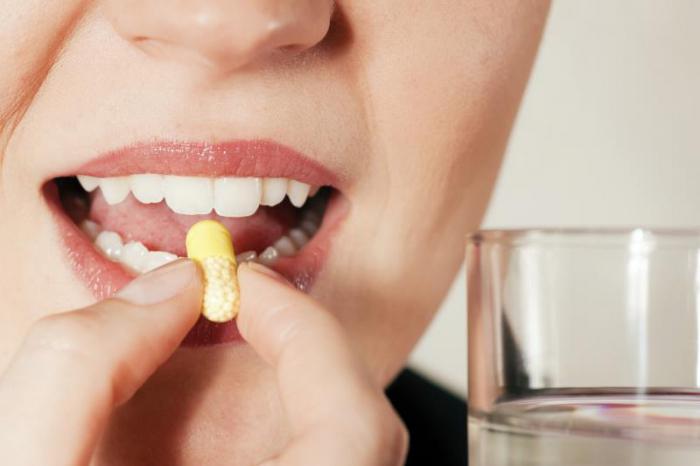
Transfer factor
In the early 1950s, special proteins were discovered. They provide the transfer of information from one immune-type cell to another. In this case, the connection between humoral immunity and cellular immunity is ensured. The collection of these proteins was called the transfer factor. During the 1980s, 4Life Research developed a technology for extracting it from bovine colostrum and chicken yolks. In this case, a certain pattern was established. It consisted in the fact that cow transfer factors are identical to human ones. As a result of this, the idea arose of stimulating the production of antibodies in the human body in this way.
Conclusion
After reviewing the above information, everyone will be able to find the answer to the question of what drugs for immunity exist, what they are and how they work. It should be remembered that all funds of this type preferably taken after consultation with a qualified healthcare professional.
How to strengthen the immune system? To lead healthy image life, eat right, temper, and, if necessary, take special preparations that increase immunity.
Immunity is a complex system that ensures the body's resistance to infectious, viral and bacterial invasions that can harm our health. Weak immune defenses are one of the direct causes of frequent illnesses in humans.
Indications for the use of drugs that increase immunity
Drugs that increase immunity are used for therapeutic and prophylactic purposes:
- with acute and chronic respiratory pathologies and influenza;
- with infectious and inflammatory diseases of the oral cavity;
- with stomach and duodenal ulcers;
- with chronic infectious diseases urinary system;
- before and after surgical interventions;
- with herpes and cytomegalovirus infection, with chlamydia;
- at acute infection intestines;
- with neuroinfectious lesions (borelliosis, meningitis);
- with chronic hepatitis of viral etiology;
- with AIDS at stage 2A-3B;
- as a prophylaxis during the period of mass incidence of ARVI.
Release form
Drugs that increase immunity can be produced in different forms:
- as conventional or enteric tablets for oral administration;
- in the form of tablets for absorption in the mouth;
- in the form of a solution or powder for injection;
- in the form of liniment or ointment for external use;
- in the form of a tincture of 40 ml, 50 ml, 100 ml in dark translucent jars;
- in the form of capsules for internal use;
- in the form of rectal and vaginal suppositories.
Pharmacodynamics
- Herbal immunostimulants. The effect of herbal preparations is explained by the properties of stimulating immunity at the cellular level, enhancing the phagocytic ability of macrophage cells and activating targeted cell migration. Long-term use of such drugs can increase non-specific immunity and the resistance of immune forces to external influences.
- Immunostimulants based on the action of bacteria. The mechanism of action is reminiscent of vaccines: a certain dose of a drug is injected into the bloodstream, consisting of weakened or dead bacteria - probable infectious pathogens. As a result, the body synthesizes antibodies against these bacteria. These immunostimulants act on bacteria, allowing them to prevent pathology, or speed up recovery.
- Nucleic acid-based immunostimulants. They have multiple properties: they accelerate the healing and restoration of tissues, activate the function of the bone marrow and the formation of leukocytes, stimulate the phagocytic activity of macrophage cells and form the nonspecific resistance of the organism.
- Interferon preparations. They prevent damage to the body by viruses, stimulate protective functions.
- Funds thymus... They restore an adequate response of the body to pathogenic stimuli, activate immunity at the cellular level, accelerate the processes of phagocytosis, and improve cellular metabolism.
Pharmacokinetics
Pharmacokinetic properties of drugs have not yet been studied, or insufficiently studied.
Use during pregnancy
The list of immunity-enhancing drugs that can be used during pregnancy is not that long. This is because many drugs have simply not been tested in pregnant and lactating women. Such experiments require large financial investments, and not every pharmaceutical company can afford it.
However, there are some drugs allowed during pregnancy (of course, after consulting a doctor):
- viferon - allowed for use from the 14th week of pregnancy and throughout the lactation period;
- oscillococcinum - a homeopathic medicine that can be used after consulting a doctor;
- drops Beresh-Plus - an immunomodulating drug with a tonic effect;
- vitamin complexes: Vitrum prenatal, Elevit pronatal, teravit pregna, pregnavit, Multitabs for pregnant women, etc.
Prohibited during pregnancy: amiksin, immunofan, groprinosin, anaferon, sodium nucleinate, trimunal, broncho-munal, echinacea, polyoxidonium, etc.
Contraindications to the use of drugs that increase immunity
Contraindications to the use of drugs that increase immunity are:
- pregnancy and lactation (in some cases);
- hypersensitivity of the body to the components of the drug.
Side effects of drugs that increase immunity
- Herbal immunostimulants have virtually no side effects. Sometimes possible allergic reactions which appear as skin rashes, vomiting and digestive disorders.
- Immunostimulants based on the action of bacteria can sometimes cause dyspeptic disorders (vomiting, nausea, diarrhea, abdominal pain).
- Nucleic acid-based immunostimulants: soreness at the injection site, pain in the stomach, difficulty breathing, decreased heart rate.
- Interferon preparations can cause a lot of side effects, which manifest themselves in the form of a skin rash, allergic reactions, furunculosis, disorders digestive system, violations of hematopoietic processes, cardiac activity, the development of depressive conditions.
- Thymus medication can cause allergic reactions.
What drugs increase immunity?
There are a lot of drugs that are designed to increase immunity. They can be divided into several groups.
- Herbal immunostimulants. Such drugs are suitable for both prophylactic and therapeutic purposes. They have a minimum amount side effects, effective and harmless. These drugs include immunal, extracts of Eleutherococcus, Schisandra and ginseng.
- Immunostimulants based on the action of bacteria. The action of such agents is similar to vaccines: bacterial enzymes stimulate the synthesis of immune cells and strengthen the immune defense. These drugs include ribomunil, broncho-munal, lycopid, imudon, IRS.
- Nucleic acid-based immunostimulants. These drugs include, for example, sodium nucleinate, which inhibits the growth and development of streptococcal and staphylococcal infections.
- Interferon preparations. Effective in initial stage acute respiratory viral infections. For preventive purposes, such drugs are not used. Interferon-containing products include injections of leukocyte interferon, viferon, influenza, arbidol, anaferon, amiksin, etc.
- Thymus gland remedies are used only as directed by a doctor. These drugs include taktivin, thymalin, etc.
Drugs that increase immunity in children
The immune defense in children has a number of features. For example, in a child from the moment of birth to six months, immunity is kept on immunoglobulins, which were passed on to the baby from the mother. After six months, the immune supply is depleted, and the child becomes more susceptible to all kinds of bacteria. A child will be able to carry out independent synthesis of immunoglobulins only from the age of six, and finally his immune system will be formed only by the time of puberty.
The use of drugs that increase immunity in children may be justified in the following situations:
- the baby is sick more than six times a year;
- common sore throat or runny nose are characterized by a protracted course, often complicated by other pathologies (ear inflammation, sinusitis);
- a cold usually lasts a long time, its treatment is ineffective.
Of course, the question of the advisability of prescribing immunostimulants to a child should be decided by the doctor.
As a rule, from the age of three, it is already possible to prescribe herbal preparations, such as immunal, echinacea, lemongrass. Babies under 3 years old are stimulated with interferons: laferobion, influenza, gammaferon.
Nucleic acid preparations (ridostin, derinat) are prescribed only after the child reaches 3 years of age.
In addition, pay attention to the child's food, play with him more often, take a walk on fresh air, and in the morning do some simple morning exercises. This will significantly strengthen your baby's immune system.
Drugs that increase immunity in adults
To increase the weakened immunity in an adult, it is sometimes advisable to use several drugs in combination. Firstly, this method of treatment will be more successful, and secondly, you can use minimum dose each of the drugs.
Every year, with a weak immune defense, it is allowed to undergo from 3 to 4 treatment-and-prophylactic courses. In particular, it is recommended to take medications during the mass incidence of influenza, or simply in the off-season, when the body receives a minimum amount of vitamins from food. The duration of taking drugs should not be too short: usually the effect of them is observed only after 7-14 days from the start of treatment.
Relatively not so long ago, pharmacy chains presented qualitatively new drugs aimed at increasing immune protection. These are agents such as polyoxidonium and galavit. Studies have shown that these medications are effective even with critically weakened immunity. Perhaps the only drawback of these drugs is their still very high cost.
Of course, with heavy immune pathologies the drugs used must also be serious, and in some cases it is recommended to vaccinate to increase immunity. For example, such serious illness like encephalitis, diphtheria, and even influenza can provoke the development of rather severe complications. Vaccination will allow the body to resist a specific disease.
Drugs that increase immunity for herpes
A significant drop in immunity can be observed during viral infectious diseases (especially in chronic form). For this reason, for the treatment of a viral infection, for example, herpes, experts have developed special drugs - interferon inducers. Such drugs are designed to activate the synthesis in the body of its own interferon. In addition, these drugs have fewer side effects than interferon medications.
There are several more advantages of inducer drugs:
- low price of drugs;
- lack of addiction;
- duration of action even with a single use;
- lack of interaction with other drugs.
In the fight against herpes, domestic specialists use various medications that induce interferons. Among them are Kagocel, Amiksin, Ridostin, Cycloferon, Poludan. Sometimes treatment with such drugs is combined with the use of acyclovir, famciclovir, etc. The main condition for the effectiveness of treatment is the timely prescription of drugs.
Method of administration and dosage
Echinacea tincture is usually used in a dosage of 5 to 15 drops 2-3 times a day.
Cycloferon requires the appointment of a schematic medication intake. Treatment is scheduled for every day. The tablet is taken, as a rule, once daily before meals, without chewing, with plenty of water.
Immunal is taken on average 20 drops three times a day, with a small amount of water. The course of therapy is from 1 to 8 weeks.
Imudon is taken 8 tablets a day, every 3 hours. The duration of treatment is about ten days.
Broncho-munal is taken in the morning before meals, 1 capsule per day, for 2 to 4 weeks.
Polyoxidonium is used in the form of intramuscular or intravenous injections, or vaginal suppositories. The dosage is prescribed depending on the pathologies existing in the body.
Before starting treatment with drugs that increase immunity, carefully read the instructions for the drug. Do not start taking the product without talking to your doctor.
Storage conditions
Drugs that increase immunity should be stored in dry, dark places, at t ° up to 25 ° C. Suppositories are stored exclusively in the refrigerator.
You can find out the expiration date of the preparations from the special annotation enclosed in the package.
It is better to prescribe drugs that increase immunity after a thorough examination of the state of the body's defenses. Such a study is called an immunogram.
Medicines for enhancing immunity are numerous remedies of plant, animal and synthetic origin. Also popular are preparations containing particles of dead bacteria (lysates). Pills, tinctures or injections that increase immunity are prescribed for adults and children who suffer from protracted, complicated and chronic infections. Below is an overview of the immunostimulating medications that people most often ask for in pharmacies.
In Russian-speaking countries, more than a hundred drugs that increase immunity are registered and sold. Parents usually consider treatment with these remedies if their child has frequent colds. However, the methods evidence-based medicine could not confirm the effectiveness of popular drugs. Simply put, the results from taking immunity medications are not much better than taking a placebo.
What are the best drugs for immunity
The best remedies for immunity, this is actually not pills, tinctures or injections, but the cessation of exposure to factors that weaken the body's defenses in a child or adult. The cause of suppressed immunity can be inadequate nutrition, worms, stress, liver overload, re-infection with bacteria or viruses. The transition to a healthy lifestyle improves immunity better than any medication, even the most expensive ones.
We repeat that the effectiveness of popular drugs that stimulate the immune system is almost the same as from taking a placebo. There are some really effective immunity medications, but they can cause serious side effects - allergies or even autoimmune diseases... It's even worse than infection. Therefore, doctors prescribe powerful drugs only for serious illnesses, for which they are treated in the hospital, and not at home.
The human immune system is made up of many different components, and science still has little understanding of how they work together. All drugs act on one link in the chain of immunity - macrophages, B-lymphocytes, T-lymphocytes, the ability to produce interferon, etc. Perhaps the stimulation of some components of the immune system will lead to the suppression of others. There is also a risk that the drugs will cause the immune system to attack the tissues of the body. This can cause allergies or severe autoimmune disease.
For the reasons stated above, immunity medications need to be viewed with skepticism despite their attractive advertisements on television, in magazines and on the Internet. The best means to increase the immunity of a child is to follow the recommendations of Dr. Komarovsky outlined in Art. Adults need to wean themselves from bad habits depressing immunity. You can read more about this in other articles on our website.
Immunostimulants of plant origin
Plants that stimulate the immune system are Eleutherococcus, Echinacea, Ginseng, Rhodiola rosea, Schisandra chinensis, aloe, Kalanchoe, hawthorn and dozens of others. Hundreds of medicines and nutritional supplements are made from these plants. Moreover, the border between drugs and herbal dietary supplements for immunity is conditional. Because neither one nor the other can boast of the effectiveness, confirmed by evidence-based medicine.
Some of the plant immunostimulants are called adaptogens - agents that increase the body's resistance to a variety of unwanted external influences. The main property of adaptogens is to strengthen immunity, increase resistance to infections. Natural herbal preparations do not mean that they are completely safe. There is always a risk of allergic reactions. Small children should not be given alcoholic tinctures, even in minimal amounts.
Read about plants that boost immunity:
Echinacea purpurea
Echinacea purpurea is the most popular herbal remedy that increases immunity. For the production of medicines and dietary supplements, its juice and extract are used. In the pharmacy, you can find lozenges, lozenges, tablets, pills, drops, syrups and tinctures containing echinacea.
Echinacea purpurea preparations
Medicines of animal origin
Animal medications that increase immunity are obtained from internal organs cattle and pigs. Active substances extracted from the thymus gland (thymus), bone marrow and spleen. Science has little understanding of the mechanism of action of these drugs. But practice shows that they really strengthen human immunity. Therefore, they are used for serious illnesses that are treated in a hospital. For example, with pneumonia, in addition to antibiotics.
Drugs - thymalin, T-activin, thymactide, thymoptin, vilosen, thymogen, immunofan, myelopid, splenin and others. Most of the drugs of animal origin that stimulate the immune system, doctors prescribe to their patients in the form of subcutaneous or intramuscular injections... Timactide comes in pill form under the tongue. Thymogen is a nasal spray that can be used at home to prevent and treat colds.
Means for increasing the immunity of microbial origin
Medicines for enhancing immunity of microbial origin are preparations containing cell fragments of certain bacteria. These drugs are thought to help prevent infections that are part of them. They also have a nonspecific immunostimulating effect - they activate phagocytes, increase the concentration of protective substances in mucus in the respiratory tract.
Immunostimulants of microbial origin
Bronchomunal is a drug that contains fragments of 8 bacteria - 3 variants of streptococcus, 2 variants of Klebsiella, one each for staphylococcus, moraxella and hemophilus influenzae. There are two options for this medication. One of them - with dosages half the standard, is called Broncho-munal P, that is, pediatric, for children from 6 months to 12 years.
Indications for use - treatment and prevention of bronchitis, tonsillitis, pharyngitis, laryngitis, rhinitis, sinusitis, otitis media. Bronchomunal capsules are taken in the morning on an empty stomach. For treatment - 10-30 days in a row. For prevention - take 10 days, then a 20-day break, and so on for 3 months. Possible adverse reactions- nausea, vomiting, moderate fever. In practice, they rarely happen.
Imudon is a remedy for the treatment and prevention of stomatitis, periodontitis, pharyngitis, tonsillitis, i.e. infections of the pharynx and oral cavity. Like other medicines listed in this section, it contains bacterial lysates. It is used in adults and children over 3 years old. Sometimes Imudon is prescribed to fight unpleasant odor from mouth.
IRS-19 is a medicine in the form of a nasal (nasal) aerosol containing lysates of 19 bacteria. It is used for the treatment and prevention of diseases of the ENT organs and respiratory tract. First you need to cleanse your nose, and then inject once into each nostril. This procedure is repeated 2-5 times a day until the patient recovers or until the medicine runs out. For prevention - 2-3 courses per year for 2 weeks. IRS-19 is prescribed for children over 2 years old and for adults. At the beginning of treatment, a runny nose may intensify, the patient sneezes more often. Allergic reactions are also possible.
Ribomunil is a drug that contains ribosomes of Haemophilus influenzae, streptococcus and Klebsiella. Ribosomes are parts of cells that synthesize protein from amino acids. Ribomunil is prescribed for frequent, recurring or lingering infections of the respiratory tract and ENT organs. Suitable for children over 6 months old. The regimen is so complicated that a special calendar is put into the packages with the drug. Side effects are rare.
Likopid is a drug that is a synthetic analogue of the structural fragment of the membranes of bacterial cells. It is prescribed for the prevention and treatment of acute respiratory infections, herpes, and lingering skin infections (furunculosis). Most of the specific indications for use have their own specific treatment regimen. Likopid is a sweet pill that is taken orally or under the tongue. Contraindicated in pregnant and breastfeeding women. Allowed for children over 3 years old.
Pyrogenal is a bacterial immunity drug that sometimes causes an increase in body temperature in patients. Contains fragments of the cell wall (lipopolysaccharides) of Pseudomonas aeruginosa and other bacteria. It is categorically not suitable for self-medication! It is produced in suppositories and solutions for injections, and not in tablets, so that people do not have unnecessary temptations to take this drug on their own.
Interferon inducers
Interferon inducers are a group of drugs that are prescribed mainly against viral infections. The mechanism of action is that upon contact with cells and tissues active ingredients drugs cause the formation of interferon. Natural inducers of interferon - viruses, as well as many bacteria and chemical compounds... Pharmaceutical drugs artificially stimulate the production of this substance.
Interferon is a special protein that inhibits the multiplication of viruses in the body. It is produced by cells infected with viruses to transmit a signal to neighbors that the virus has not yet reached. Interferon stimulates the cells that have received its signal to change their structure in order to become unsuitable for the reproduction of viruses. Thus, the affected cell dies, but the viruses that invade it do not leave offspring. Interferon does not come into direct contact with viruses. This is a signalman, a spy from a fortress engulfed in battle.
Interferon inducers
Viruses that have entered the body are themselves interferon inducers. It would seem, why do we need more drugs? The fact is that some viruses are strong inducers of interferon, while others are weak. Many viruses that cause serious illness are weak interferon inducers. These are HIV infection, herpes viruses, hepatitis B and C, cytomegalovirus. At the same time, almost all ARVI pathogens are strong interferon inducers. An exception is the Epstein-Barr virus, the causative agent of infectious mononucleosis.
Based on the above, the use of interferon inducers for colds is of dubious expediency. But, despite the lack of an evidence base, these drugs have become popular drugs for the prevention and treatment of ARVI. They conquered the pharmaceutical market despite their solid price tag. Dr. Komarovsky believes that in the overwhelming majority of cases with common colds, there is no point in spending money on these drugs. For more details, watch the video.
Arbidol is a popular remedy for the treatment and prevention of ARVI. Not suitable for children under 2 years of age. Usually well tolerated, occasionally causes allergic reactions.
Amiksin - is prescribed for children over 7 years old and for adults, for the prevention and treatment of ARVI, as well as against hepatitis, herpes and cytomegalovirus infection. Possible side effects are allergic reactions, nausea, and other digestive problems. This remedy is contraindicated for pregnant women.
Cycloferon is a medicine for the treatment of almost any viral infection, from mild ARVI to HIV. Liniment is dosage form cycloferon for topical application... It is prescribed for herpes, with infectious lesions genitourinary system(fungus, Trichomonas).
The dosage of cycloferon, the duration of treatment, the dosage form used - depend on the specific situation, are determined by the doctor. This remedy is usually well tolerated, occasionally there are allergic reactions. The medicine has no age restrictions, but is contraindicated for pregnant and lactating women, except for liniment.
Folk remedies
Folk remedies for immunity are primarily drinks made from vitamin fruits and berries, as well as herbal teas. It is believed that fruit drinks and compotes from viburnum, cranberry, lemon and other plants that give a sour taste are good for strengthening the immune system. Because they contain vitamin C in natural form.
conclusions
The effectiveness of drugs that increase immunity is directly proportional to their side effects... For real effective pills, tinctures or injections often cause allergies, and even autoimmune diseases. Therefore, doctors prescribe them only for serious illnesses, which are treated in a hospital, and not at home. If the drug is well tolerated and in widespread demand, then most likely its effect on the immune system is not much higher than from taking a placebo.
Over-the-counter immune medications are a distracting and calming therapy for patients and their families. For serious illnesses, immunostimulants cannot serve as a substitute for drugs that have proven effective. Most SARS, in which people take immunity remedies at home, could go away in a few days and without any treatment. Instead of medication, look at the safe ways to boost your immune system described in other articles on our site.
Fragile child immunity faces many viruses, infections and colds. Overcome negative impact environment the child's body can be very difficult. Therefore, parents strive to help their baby by acquiring various means to strengthen the immune system.
Signs of weakened immunity in children
The development of the baby's immune system begins during pregnancy. During the period of breastfeeding, the mother has the opportunity to support and strengthen the immunity of her baby. Exactly at breast milk contains a huge amount of vitamins, minerals and useful for small organism substances that cannot be reproduced artificially. As the baby grows up, he receives all the necessary elements from his daily diet nutrition.
A huge number of different factors contribute to a decrease in the child's immunity, the main of which are:
- poor environmental situation in the area where the child lives;
- unbalanced or improper diet;
- flaw nutrients(minerals, vitamins, trace elements);
- need to receive medicines, especially for antibiotics;
- an excess of emotional or physical stress;
- lack of sleep;
- wrong daily routine.
A weakened immune system in a child can be recognized by the following main features:
- the baby often has colds and viral diseases, more than 6 times during the year;
- long recovery, as well as a difficult recovery period after illness;
- the appearance of allergic reactions;
- the child quickly gets tired, he has a decrease in concentration;
- irritability, drowsiness;
- improper work of the digestive system.
In the event that a child has these symptoms, attention should be paid to restoring and strengthening the immune system. The very first step of parents on the way to strengthening immunity is organizing a clear day regimen, providing the child with sufficient sleep per day, allocating time for good rest, if possible, eliminating stressful situations and normalizing physical activity - with excessive physical activity, they need to be reduced, and in case of a deficiency - to increase. Nutrition plays an important role, so you need to revise the child's menu, providing a sufficient amount of vitamins, minerals and nutrients.
Drugs that improve immunity in children
Despite the consumption of fruits and vegetables, as well as when many are included in the menu useful products, sometimes they are not able to make up for the lack of vitamins in the body of children. Sometimes parents do not have the opportunity to control how their children comply with the regime, what their physical activity is, etc. That is why it is worth thinking about purchasing special vitamin complexes, contributing to raising immunity in children.
The pharmaceutical market offers a huge number of different drugs, advertising of which says about increasing immunity after taking them. However, each of these funds differs from others in composition, form of release, age category for which they are intended.
All drugs can be divided into several main categories:
- based on herbal ingredients;
- having a bacterial origin;
- nucleic acid-based;
- antiviral drugs (based on interferon);
- vitamin preparations;
- thymus;
- biogenic stimulants.
The doctor should determine which means should be used to raise the child's immunity. It is necessary to prescribe them, depending on the age of the child, his weight, and also taking into account individual characteristics organism.
Medicinal preparations based on herbal ingredients
This group should include Immunal. Its composition is based on Echinacea purpurea. This remedy the best way suitable for the prevention of colds and flu. Recommended for children over 1 year old.
Also, echinacea is the main active ingredient in drugs such as echinacea tincture (this product is produced by domestic manufacturers) and echinacea tincture of Dr. Taiss.
Also useful for strengthening the immune system:
- Eleutherococcus extract;
- tincture of schisandra chinensis;
- tincture of ginseng.
Means of bacterial origin
The action of these substances is based on the presence of bacteria in the composition, which are the causative agents of certain infections. However, the bottom line is that they are not dangerous to the body, but have a stimulating effect on the immune system. These drugs include Ribomunil, Bronchomunal, Likopid, Imudon, IRS 19. Many of them are prescribed by doctors as a prophylactic agent to prevent diseases of the ENT organs. However, it is up to the pediatrician to determine which drug should be taken by the child.
Nucleic acid-based
Derinat is one of these. It differs in that it has a wide range of applications. It is a wound-healing drug that has a beneficial effect on the immune system and promotes the regeneration of cells and tissues of the body.
Antiviral drugs (interferon-based)
These remedies are best suited for treatment at the first symptoms of the disease. As a preventive measure to prevent infectious diseases, it is not recommended to use them. Such funds include Grippferon, Arbidol, Amiksin, Kagocel, etc.
Vitamin preparations
They are used to strengthen the immunity of both children and adults. Pharmacies offer a huge number of names of all kinds of vitamin complexes for children. They come in a variety of shapes and are designed for children. of different ages... However, it is best to consult a qualified professional before purchasing any vitamins.
Thymus
These funds can only be used as directed by a physician. They are prescribed in case of weakening of the immune system as a result of serious diseases. They have been known to medicine since Soviet times. These are peptide drugs - Timactide, Vilozen, Timalin, etc.
Biogenic stimulants
These immunostimulants are based on the use of certain isolated plant tissues or animal origin. These include extracts of kolanchoe, FiBS, Actovegin, etc.
Homeopathic and folk remedies
Since a decrease in immunity in children occurs for various reasons, it is also necessary to raise it in individually... With the correct selection of a homeopathic drug, proper adherence to the dosage, the effect of its use can be much more significant than from "fashionable" expensive medicinal immunostimulating agents.
Sometimes, significant benefits to the body can be brought and folk remedies... These include honey. However, this product may not be suitable for children with allergies. It is a good idea to use propolis as an antiviral agent.
Rosehip fruits have a whole range of different vitamins. Rosehip syrup is recommended for children as a means to strengthen the immune system.

